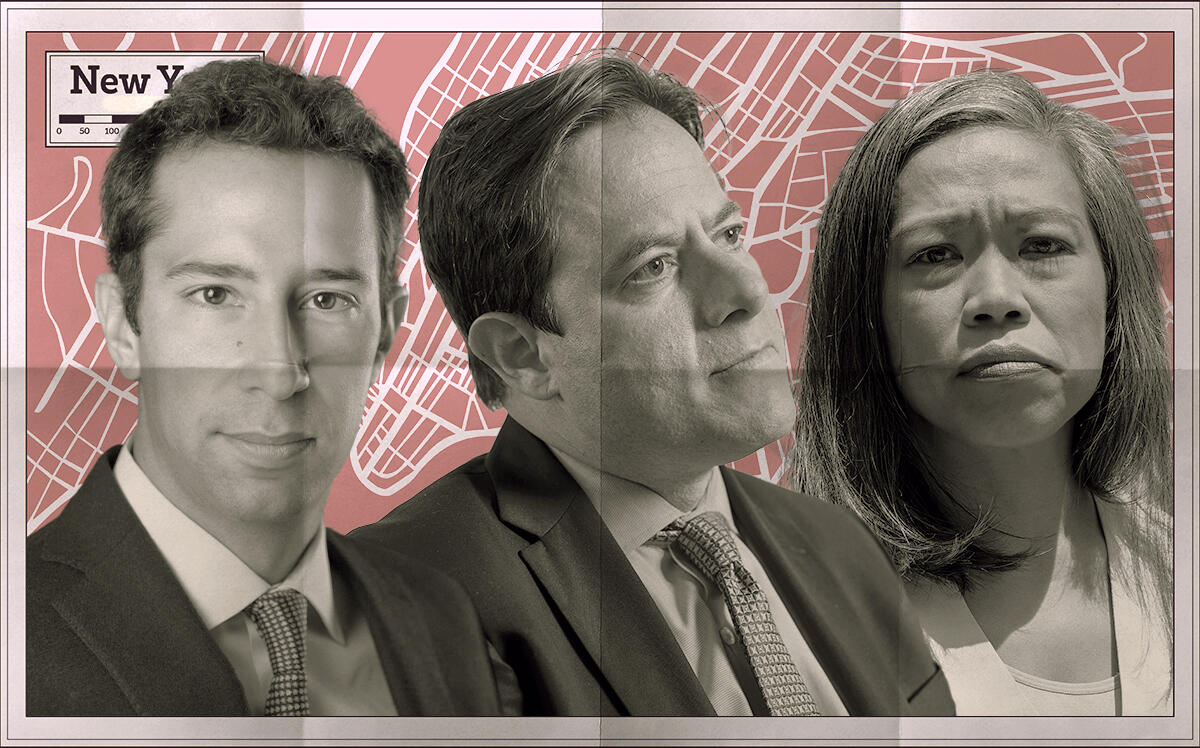Officials tackling the housing crisis agree that the city needs to shorten the environmental review process that snarls rezonings. But it is not clear how far reforms will go — or if there will even be any.
At a Citizens Budget Commission panel Wednesday about fixing the city’s land use review process, city and state officials voiced support for a number of recommendations made by the think tank, such as revising the city and state’s environmental review requirements.
“It is too long and it is too complicated,” City Planning head Dan Garodnick said of the City Environmental Quality Review, or CEQR.
A report by the budget group this month blamed pre-certification and environmental reviews for dragging out project timelines and driving up costs. The group proposed limiting the types of projects required to undergo environmental analysis and allowing appeals of rejections by the City Council.
On Wednesday, Garodnick said he supported consolidating the information the city requires from applicants as part of the CEQR process — the idea being that applicants should not have to chase down information from various city agencies.
“We should make our piece of the puzzle as easy as possible,” he said.
Mayor Eric Adams’ Building and Land Use Approval Streamlining Task Force, or BLAST, is expected to release recommendations in the coming weeks for cutting red tape. Garodnick indicated that BLAST has studied ways of amending CEQR, including exempting 100 percent affordable housing projects.
He also said City Planning would like to create an app to simplify environmental reviews and that projects should not be burdened with environmental assessments — a lesser version of environmental impact statements — especially when no rezoning is involved.
The city’s ability to change environmental review is limited, however, and would require state action. And the state has its own problems.
RuthAnne Visnauskas, commissioner of the state’s Division of Homes and Community Renewal, acknowledged flaws in the state environmental review process but said it is not the only thing “strangling” development; high costs and supply chain issues are also problems.
The commissioner said she hopes housing will be a focus of the next legislative session. Attempts to replace the expiring property tax break 421a failed this year, as did several other housing initiatives, including legalization of accessory dwelling units.
Maria Torres-Springer, deputy mayor of economic and workforce development, said the city needs to speed up things within its control, including permits, inspections and other approvals handled by a “web of city agencies.” She called the city’s housing crisis man-made, blaming vocal opponents of housing projects, among other factors.
“It is a casualty of institutional failures, and a status quo that is calcified by a regulatory environment that costs too much in time and money, a political environment that allows people to say, ‘Well, it is not my problem,’ and a civic environment that too often condones finger-pointing, hand-wringing and pearl-clutching,” she said.
She also criticized the “environmental review industrial complex,” saying that a 1,000-page-plus environmental impact statement is not responsive to community needs.
Vicki Been, a faculty director at NYU’s Furman Center and former deputy mayor under Bill de Blasio, emphasized the need for large-scale rezonings. Though the Adams administration has announced three citywide zoning text amendments and committed to the long-awaited rezoning of parts of Prospect Heights and Crown Heights, it has yet to propose any neighborhood rezonings.
Been noted that a report by the Furman Center found that 25 percent of multifamily units created from 2010 to 2020 were built in areas rezoned by the de Blasio or Bloomberg administrations.
“We can’t just rely on landowners or developers to come forward with proposals. Those private rezonings are limited to a site or just a few sites,” she said. “They don’t involve attention to comprehensive neighborhood needs that are involved in a city-initiated rezoning that takes a wider view.”
Reforms to the city’s Uniform Land Use Review Procedure, or Ulurp, have been repeatedly proposed over the years but have failed to go anywhere. Changes to the environmental review process would require state and city action. The City Council holds considerable sway over Ulurp and is not expected to give that up.
Jake Elghanayan of the developer TF Cornerstone said that while he supports the proposals by the budget commission, his company views rezonings as a political campaign and is always prepared for a lengthy process when embarking on an application. He noted that smaller developers often lack the resources to get their projects through it.
When asked by the panel moderator if he would like the process to be easier, Elghanayan said yes — but he is not holding his breath.
“It seems an unlikely outcome,” he said.
